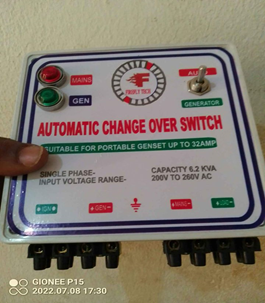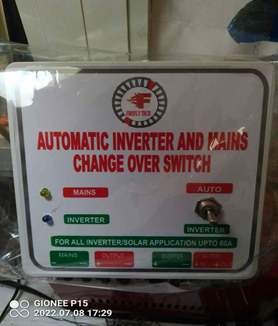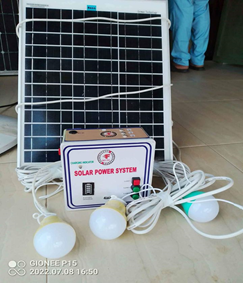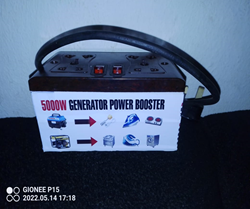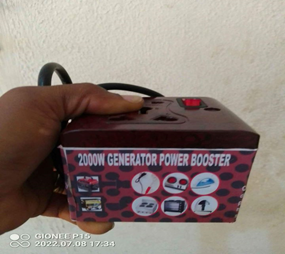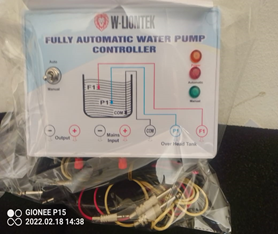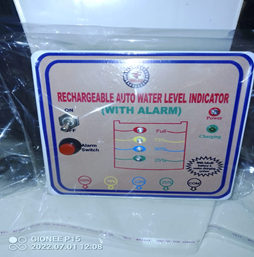EVALUATION OF STANDARD PRACTICE OF HOSPITAL WASTE MANAGEMENT AMONG HEALTH CARE WORKER IN NAUTH (NNAMDI AZIKIWE UNIVERSITY TEACHING HOSPITAL) NNEWI, ANAMBRA STATE
USER'S INSTRUCTIONS: The project work you are about to view is on "evaluation of standard practice of hospital waste management among health care worker in nauth (nnamdi azikiwe university teaching hospital) nnewi, anambra state". Please, sit back and study the below research material carefully. This project topic (evaluation of standard practice of hospital waste management among health care worker in nauth (nnamdi azikiwe university teaching hospital) nnewi, anambra state) have complete 5(five) Chapters. The complete Project Material/writeup include: Abstract + Introduction + etc + Literature Review + methodology + etc + Conclusion + Recommendation + References/Bibliography.Our aim of providing this "evaluation of standard practice of hospital waste management among health care worker in nauth (nnamdi azikiwe university teaching hospital) nnewi, anambra state" project research material is to reduce the stress of moving from one school library to another all in the name of searching for "evaluation of standard practice of hospital waste management among health care worker in nauth (nnamdi azikiwe university teaching hospital) nnewi, anambra state" research materials. We are not encouraging any form of plagiarism. This service is legal because, all institutions permit their students to read previous projects, books, articles or papers while developing their own works.
TITLE PAGE
BY
---
--/H2013/01430
DEPARTMENT OF ----
SCHOOL OF ---
INSTITUTE OF ---
DECEMBER,2018
APPROVAL PAGE
This is to certify that the research work, "evaluation of standard practice of hospital waste management among health care worker in nauth (nnamdi azikiwe university teaching hospital) nnewi, anambra state" by ---, Reg. No. --/H2007/01430 submitted in partial fulfillment of the requirement award of a Higher National Diploma on --- has been approved.
By
--- . ---
Supervisor Head of Department.
Signature………………. Signature……………….
……………………………….
---
External Invigilator
DEDICATION
This project is dedicated to Almighty God for his protection, kindness, strength over my life throughout the period and also to my --- for his financial support and moral care towards me.Also to my mentor --- for her academic advice she often gives to me. May Almighty God shield them from the peril of this world and bless their entire endeavour Amen.
ACKNOWLEDGEMENT
The successful completion of this project work could not have been a reality without the encouragement of my --- and other people. My immensely appreciation goes to my humble and able supervisor mr. --- for his kindness in supervising this project.
My warmest gratitude goes to my parents for their moral, spiritual and financial support throughout my study in this institution.
My appreciation goes to some of my lecturers among whom are Mr. ---, and Dr. ---. I also recognize the support of some of the staff of --- among whom are: The General Manager, Deputy General manager, the internal Auditor Mr. --- and the ---. Finally, my appreciation goes to my elder sister ---, my lovely friends mercy ---, ---, --- and many others who were quite helpful.
PROJECT DESCRIPTION: This work "evaluation of standard practice of hospital waste management among health care worker in nauth (nnamdi azikiwe university teaching hospital) nnewi, anambra state" research material is a complete and well researched project material strictly for academic purposes, which has been approved by different Lecturers from different higher institutions. We made Preliminary pages, Abstract and Chapter one of ""evaluation of standard practice of hospital waste management among health care worker in nauth (nnamdi azikiwe university teaching hospital) nnewi, anambra state visible for everyone, then the complete material on "evaluation of standard practice of hospital waste management among health care worker in nauth (nnamdi azikiwe university teaching hospital) nnewi, anambra state" is to be ordered for. Happy viewing!!!
Hospital wastes are one of the most hazardous wastes globally; second to only radiation waste. Hospital wastes management needs to be prioritized because of the devastating effects on human health and environment if not well managed. Health workers play a crucial role in management of hospital waste. This study investigated the management of Hospital wastes among health workers and associated factors in Nnamdi Azikiwe University Teaching Hospital, Nnewi,
An interview was conducted with health workers who provided data on socio-demographic characteristics, knowledge, attitudes and practices on Hospital wastes management. Prevalence ratios (PRs) and their corresponding 95% confidence intervals were used as a measure of association between Hospital wastes management and associated factors. The PRs were obtained using a multivariable modified Poisson regression using a generalized linear model of Poisson family with a logarithm as the canonical link function, with robust standard errors while applying a forward elimination method.
A total of 200 health workers responded to the survey; Knowledge of Hospital wastes management was high 143 (71.5%, 95% CI (65.2–77.8)). About 160 (80.0%) wore appropriate personal protective wear when handling hospital wastes. Overall, 148 (74.0%, 95% CI (67.8–80.1) had satisfactory Hospital wastes management practices. Health workers with diploma education (Adjusted PR = 1.49, 95% CI (1.13–1.96), working in the teenage corner (Adjusted PR = 1.10, 95% CI (1.01–1.29), previous training on Hospital wastes management (Adjusted PR = 1.19, 95% CI (1.01–1.42) and those who thought Hospital wastes management was important (Adjusted PR = 2.81, 95% CI (1.22–6.47) were more likely to have satisfactory Hospital wastes management practices.
The practices of health workers on Hospital wastes management were largely satisfactory. Higher odds of Hospital wastes management were determined among health workers with diploma education, previous Hospital wastes management trainings and among those who perceived Hospital wastes management as important. There is need to organize Hospital wastes management trainings in order to improve their Hospital wastes management practices among health workers.
TABLE OF CONTENTS
TITLE PAGE
APPROVAL PAGE
DEDICATION
ACKNOWLEDGEMENT
ABSTRACT
TABLE OF CONTENT
CHAPTER ONE
- INTRODUCTION
- Background of the study
- Problem statement
- Objective of the study
- Research question
- Hypothesis
- Significance of the study
- Project organisation
CHAPTER TWO
LITERATURE REVIEW
2.0 LITERATURE REVIEW
2.1 Review of the study
2.2 Health Care Waste Management: Treatment and Management
2.3 Major Issues in hospital waste Treatment and Management
CHAPTER THREE
METHODOLOGY
3.1 Introduction
3.2 Study area
3.3 Study design
3.4 Study population
3.5 Sample size and sampling procedure
3.6 Data collection
3.7 Data management and analysis
CHAPTER FOUR
RESULT AND DISCUSSION
4.1 RESULT
4.2 DISCUSSION
CHAPTER FIVE
5.0 CONCLUSIONS
- CONCLUSIONS
REFERENCES
APPENDIX
CHAPTER ONE
1.0 INTRODUCTION
1.0 Background to the Study
Healthcare waste threatens the public health due to its contagious nature. Most healthcare facilities are located in the heart of the cities and therefore, healthcare waste that are not correctly managed can cause dangerous infection and pose potential threat to the nearby environment, health workers, patients and to the public (WHO, 2014). Dehghani et al (2008) noted that Healthcare Waste (HCW) if not appropriately managed can be a serious threat to human health due to their infectious attributes. Nigeria, one of developing countries, has health issues that are competing for limited resources; it is not amazing that healthcare waste management receives less attention and precedence than it merits (Stephen, & Elijah, 2011). Therefore, there is a serious challenge in developing countries, where there are no Institutional provisions for healthcare waste management. Clinical wastes are disposed openly in the dumpsite along with municipal waste and the practice make the members of the community gain access to it which may lead to outbreak of infectious diseases (Alagoz et al, 2011) . Cheng, et al (2009) noted that as small as healthcare waste is in proportion to the total community waste, its management is considered an important issue worldwide. World Health Organization (2014) reported that 15% of total waste generated in the healthcare facility is hazardous and must be properly segregated at the point of generation to prevent the whole healthcare waste becoming 100% hazardous. The World Health Organization estimates that each year there are about 8 to 16 million new cases of Hepatitis B virus (HBV), 2.3 to 4.7 million cases of Hepatitis C virus (HCV) and 80,000 to 160,000 cases of human immune deficiency virus (HIV) due to unsafe injections disposal and mostly due to very poor waste management systems.
Across the globe, the risk associated with hospital wastes and its management has gained tremendous attention from health practitioners and non-practitioners. If healthcare facilities know the types and quantities of clinical waste generated, it will help them in planning, budgeting adequate revenue for the management of hazardous waste (Bongayi, 2013). A study conducted by Olubukola (2009) in two General hospitals at Lagos reported that due to lack of quantification of healthcare waste, there was no waste reduction plan in the hospitals.
This lack of plan for healthcare waste management eventually leads to inadequate waste segregation at point of use, collection, storage and final disposal. This poor healthcare waste management practice creates health hazards for health workers, patients and the environment. Identified gaps like lack of colour code bags for segregation of healthcare waste at point of use, lack of guidelines on segregation and disposal for health workers lead to poor healthcare waste management in hospitals. The mismanagement of healthcare waste by healthcare facilities does not pose health hazard to health workers and patients alone but also to patients’ visitors and the community where they are improperly disposed by contaminating the soil, air and water. Healthcare facilities are supposed to protect the health of people in their environment, not to be a creator of potential health hazard for them.
Furthermore, increase in patient turned-out has increase the generation of healthcare waste. Mboguwe et al (2008) also reported that increase in population results to increase in healthcare facilities that lead to increased healthcare waste generation. It is expected that because of this increase, more attention should be paid to and priority given to proper hospital waste management in Nnewi, Anambra State. Management of healthcare waste continues to present an array of challenges especially as economic situation of the country deepen daily therefore, healthcare waste management has become a concern.
So many studies have been conducted on healthcare waste management but little or no work has been done concerning segregation of clinical waste which is a vital aspect in healthcare waste management (Coker et al, 2009). Segregation of waste is crucial in healthcare waste management because it is the first step in clinical waste management. Segregation of healthcare waste helps in reduction of the quantity of waste that is hazardous. Once healthcare waste are segregated, collection will be easy, proper storage will be done and disposal of infectious waste carried out in the way that it will not pose any harm to health workers, patients and the environment (WHO, 2014). Proper management of healthcare waste depends on good organization, sufficient funding and active participation of trained personnel. It was observed that healthcare facilities were not spending resources on clinical waste management Healthcare facility must allocate resources for colour coded bags and training of generator of healthcare waste for proper segregation and disposal for its sustainability. The intention of this study is to assess healthcare waste management practices at Nnamdi Azikiwe University Teaching Hospital Nnewi, Anambra State.
1.2 Statement of the Problem
Indiscriminate dumping of untreated hospital waste in Municipal bins increases the chances of survival and mutation of pathogenic microorganism population in the municipal waste, which can lead to disease epidemics and increased incidence of communicable disease in the community. The prevalence of infectious disease like Hepatitis B, C, Measles, Acquired immunodeficiency syndrome, Tuberculosis, Chickenpox, Cholera and others has also been traced to the inappropriate segregation and disposal of hospital waste (Sreejith, 2008).In Nnamdi Azikiwe University Teaching Hospital, the researcher observed that the healthcare facilities neglected healthcare waste management in the area of segregation and disposal. Materials required for segregation and disposal of these hospital wastes are not provided by the constituted authority, thus these pose a serious threat to the health workers, patients, environments and the community at large. There has been recent cases of hospital acquired infectious diseases among health workers which has been traced to contamination from healthcare waste, leading to untimely death of some of these health workers.
The indiscriminate dumping of hospital waste among domestic waste make the community members easily access it. A tour of these health facilities shows the absence of waste management facilities such as incinerators, autoclave, and microwave. Therefore, it is most likely that medical wastes are dumped at municipal site; this practice may lead to outbreak of communicable diseases. It is in the light of these problems identified above that the researcher developed interest in assessing healthcare waste management practices among health workers in Nnamdi Azikiwe University Teaching Hospital, Nnewi, Anambra State.
1.3 Objective of the Study
The main objective of this study is to assess the waste management practices of health workers in Nnamdi Azikiwe University Teaching Hospital, Nnewi, Anambra State. The specific objectives are to:
- identify different types of waste generated in Nnamdi Azikiwe University Teaching Hospital
- determine the level of knowledge of health workers on Healthcare waste management and its segregation;
- assess the healthcare waste management as practiced by health workers and
- determine how healthcare wastes are finally disposed of, by the healthcare facilities Nnamdi Azikiwe University Teaching Hospital.
1.4 Research Questions
- What are the types of Healthcare wastes generated at Nnamdi Azikiwe University Teaching Hospital?
- What is the level of knowledge of health workers on healthcare waste management?
- What is the practice of healthcare waste management by health workers?
- What is the final disposal of healthcare waste practiced by healthcare workers in Nnamdi Azikiwe University Teaching Hospital?
1.5 Hypothesis
Ho1: There is no significant relationship between knowledge and practice of respondents on Healthcare waste management in Nnamdi Azikiwe University Teaching Hospital.
1.6 Scope of the Study
The study focused on the evaluation of standard practice of generation, segregation and final disposal of healthcare waste in Nnamdi Azikiwe University Teaching Hospital.
1.7 Significance of the study
This study will be used to improve the healthcare waste management in Nnamdi Azikiwe University Teaching Hospital, Nnewi. It will also provide empirical data to policy makers, researchers and other concern bodies to develop effective healthcare waste management policy in Nnewi, Anambra state and the country as a whole.
1.8 Project Organisation
The work is organized as follows: chapter one discuses the introductory part of the work, chapter two presents the literature review of the study, chapter three describes the methods applied, chapter four discusses the results of the work, chapter five summarizes the research outcomes and the recommendations.
CHAPTER TWO: The chapter one of this work has been displayed above. The complete chapter two of "evaluation of standard practice of hospital waste management among health care worker in nauth (nnamdi azikiwe university teaching hospital) nnewi, anambra state" is also available. Order full work to download. Chapter two of "evaluation of standard practice of hospital waste management among health care worker in nauth (nnamdi azikiwe university teaching hospital) nnewi, anambra state" consists of the literature review. In this chapter all the related works on ""evaluation of standard practice of hospital waste management among health care worker in nauth (nnamdi azikiwe university teaching hospital) nnewi, anambra state were reviewed.
CHAPTER THREE: The complete chapter three of ""evaluation of standard practice of hospital waste management among health care worker in nauth (nnamdi azikiwe university teaching hospital) nnewi, anambra state is available. Order full work to download. Chapter three of "evaluation of standard practice of hospital waste management among health care worker in nauth (nnamdi azikiwe university teaching hospital) nnewi, anambra state" consists of the methodology. In this chapter all the method used in carrying out this work was discussed.
CHAPTER FOUR: The complete chapter four of ""evaluation of standard practice of hospital waste management among health care worker in nauth (nnamdi azikiwe university teaching hospital) nnewi, anambra state is available. Order full work to download. Chapter four of ""evaluation of standard practice of hospital waste management among health care worker in nauth (nnamdi azikiwe university teaching hospital) nnewi, anambra state consists of all the test conducted during the work and the result gotten after the whole work
CHAPTER FIVE: The complete chapter five of design and construction of a "evaluation of standard practice of hospital waste management among health care worker in nauth (nnamdi azikiwe university teaching hospital) nnewi, anambra state" is available. Order full work to download. Chapter five of "evaluation of standard practice of hospital waste management among health care worker in nauth (nnamdi azikiwe university teaching hospital) nnewi, anambra state" consist of conclusion, recommendation and references.
To "DOWNLOAD" the complete material on this particular topic above click "HERE"
Do you want our Bank Accounts? please click HERE
To view other related topics click HERE
To "SUMMIT" new topic(s), develop a new topic OR you did not see your topic on our site but want to confirm the availiability of your topic click HERE
Do you want us to research your new topic? if yes, click "HERE"
Do you have any question concerning our post/services? click HERE for answers to your questions
For more information contact us through any of the following means:
Mobile No ![]() :+2348146561114 or +2347015391124 [Mr. Innocent]
:+2348146561114 or +2347015391124 [Mr. Innocent]
Email address ![]() :engr4project@gmail.com
:engr4project@gmail.com
Visit the link below to see our recent works, and SUBSCRIBE to receive notification for our electronics teachings and practicals.
https://www.youtube.com/channel/UChY9Z1-egigJbYjYnapd0nw
COUNTRIES THAT FOUND OUR SERVICES USEFUL
Australia, Botswana, Canada, Europe, Ghana, Ireland, India, Kenya, Liberia, Malaysia, Namibia, New Zealand, Nigeria, Pakistan, Philippines, Singapore, Sierra Leone, South Africa, Uganda, United States, United Kindom, Zambia, Zimbabwe, etc
Support: +234 8146561114 or +2347015391124
Watsapp No :+2348146561114
:+2348146561114
Email Address  :engr4project@gmail.com
:engr4project@gmail.com
FOLLOW / VISIT US VIA:




